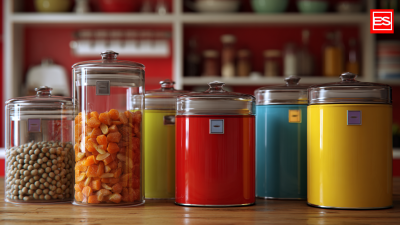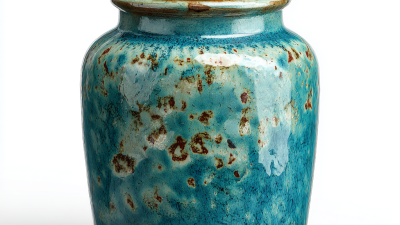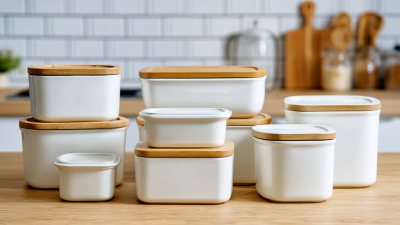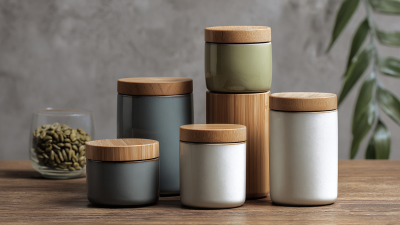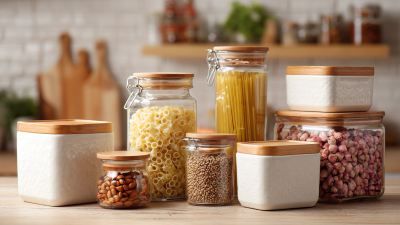

In the quest for optimal food preservation, choosing the right storage solution is imperative. A recent study by the Food Packaging Institute reveals that nearly 70% of consumers prioritize food safety and longevity when selecting their storage containers. Among the myriad options, the **Ceramic Food Storage Container** stands out for its durability, non-toxic materials, and ability to keep food fresher for longer. With a growing awareness of the dangers posed by plastic containers, which can leach harmful chemicals, ceramic is becoming increasingly popular. Industry forecasts suggest that the market for ceramic kitchenware is expected to grow by 5% annually over the next five years, reflecting a shift towards healthier lifestyle choices. This guide aims to provide essential tips and insights to help you choose the perfect ceramic food storage container tailored to your kitchen needs, ensuring that your food remains not only fresh but also safe for consumption.
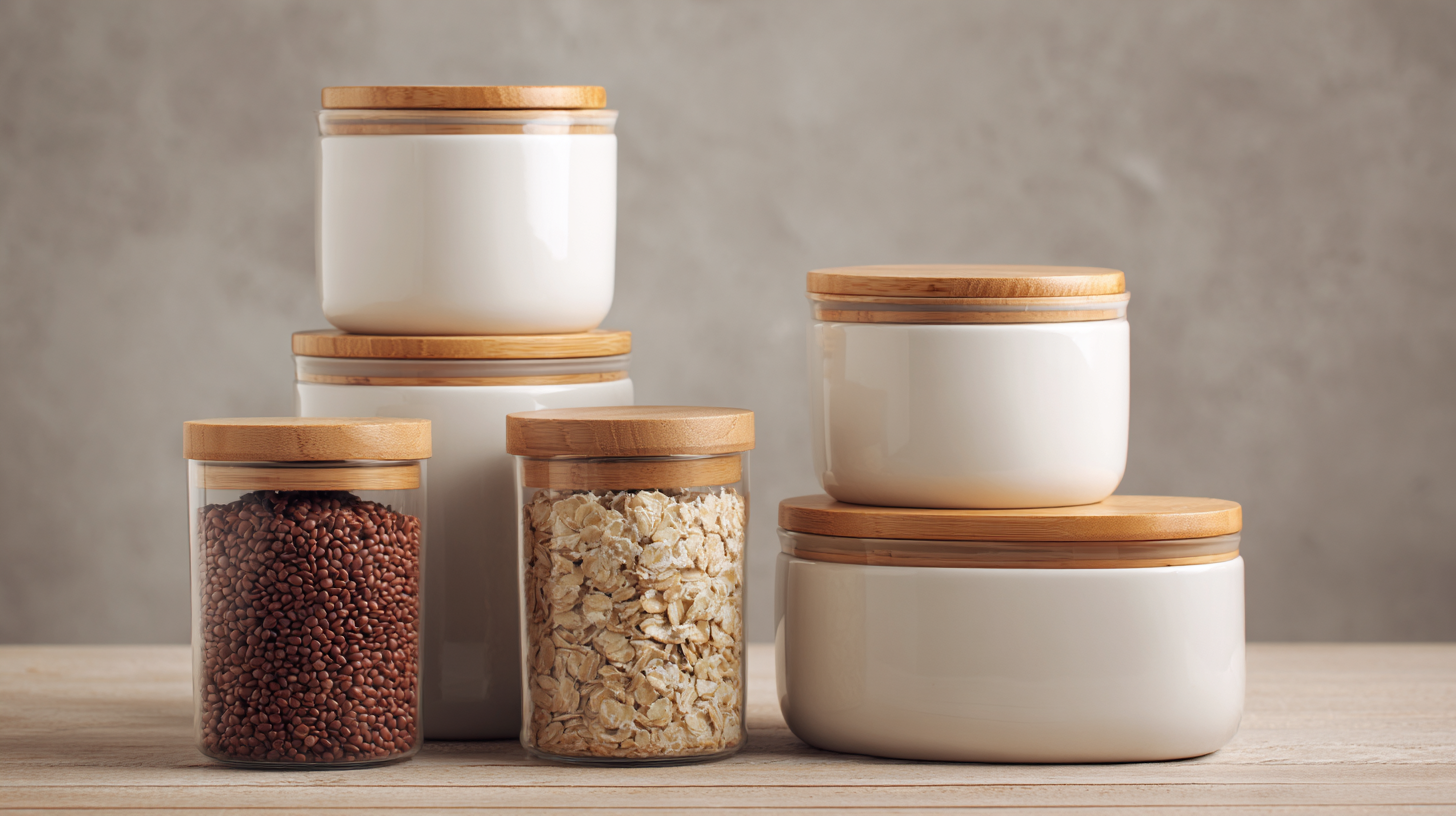
When it comes to choosing ceramic food storage containers, it’s essential to understand the various types available and their specific uses. Ceramic containers are perfect for storing a wide range of foods, thanks to their non-reactive nature and ability to maintain temperature. For instance, earthenware is ideal for marinating and serving, while porcelain containers add an elegant touch to your dining table. Selecting the right type can enhance not only the preservation of your food but also the aesthetic appeal of your kitchen.
Another important consideration is the sealing mechanism of these containers. To keep strong odors—like that of kimchi—contained, look for options with a rubber seal on the lid. This feature ensures that the aromas remain trapped and your other foods are not affected. Additionally, many ceramic containers can withstand high temperatures, making them suitable for oven use, which can be a significant advantage when transitioning from cooking to storage seamlessly. Carefully choosing a ceramic food storage container tailored to your needs can contribute significantly to a more organized and efficient kitchen.
| Type | Size | Lid Type | Best Use | Oven Safe |
|---|---|---|---|---|
| Straight Sided Jar | 500ml | Screw on | Storing dry goods, spices | No |
| Baking Dish | 2L | None | Baking casseroles | Yes |
| Canister Set | 1L, 2L, 3L | Flip top | Storing cookies, flour, sugar | No |
| Mixing Bowl | 3L | Plastic lid | Mixing ingredients | No |
| Gratin Dish | 1.5L | None | Baking gratins and lasagna | Yes |
When selecting the perfect ceramic food storage container for your kitchen, it’s essential to prioritize durability, bakeware compatibility, and safety ratings. Durable containers can withstand the rigors of daily usage, including temperature fluctuations and impacts, making them a worthwhile investment for your kitchen. Look for containers that utilize robust ceramic materials and feature seamless construction, which enhances their resistance to chipping and cracking.
Bakeware compatibility is crucial for those who often transition food from storage to the oven. Choose ceramic containers that are not only microwave-safe but also oven-safe, allowing you to directly heat your meals without the need for additional cooking dishes. Additionally, ensure that the containers have been tested for safety ratings, particularly regarding non-toxic materials and the absence of harmful chemicals. This scrutiny is essential in preventing leaching and ensuring that your food remains safe and free from unwanted toxins. Prioritizing these key features will help you find the ideal ceramic food storage solutions for your culinary needs.
When it comes to selecting ceramic food storage containers for your kitchen, understanding the price points is crucial to finding quality options that don’t break the bank. According to a recent market research report by Statista, the global ceramic cookware market is projected to reach approximately $6 billion by 2025, indicating a growing trend toward durable and stylish options for home cooks. This rise in demand means there are a multitude of choices available across various price ranges, allowing consumers to find ceramic containers that fit their budget without compromising on quality.
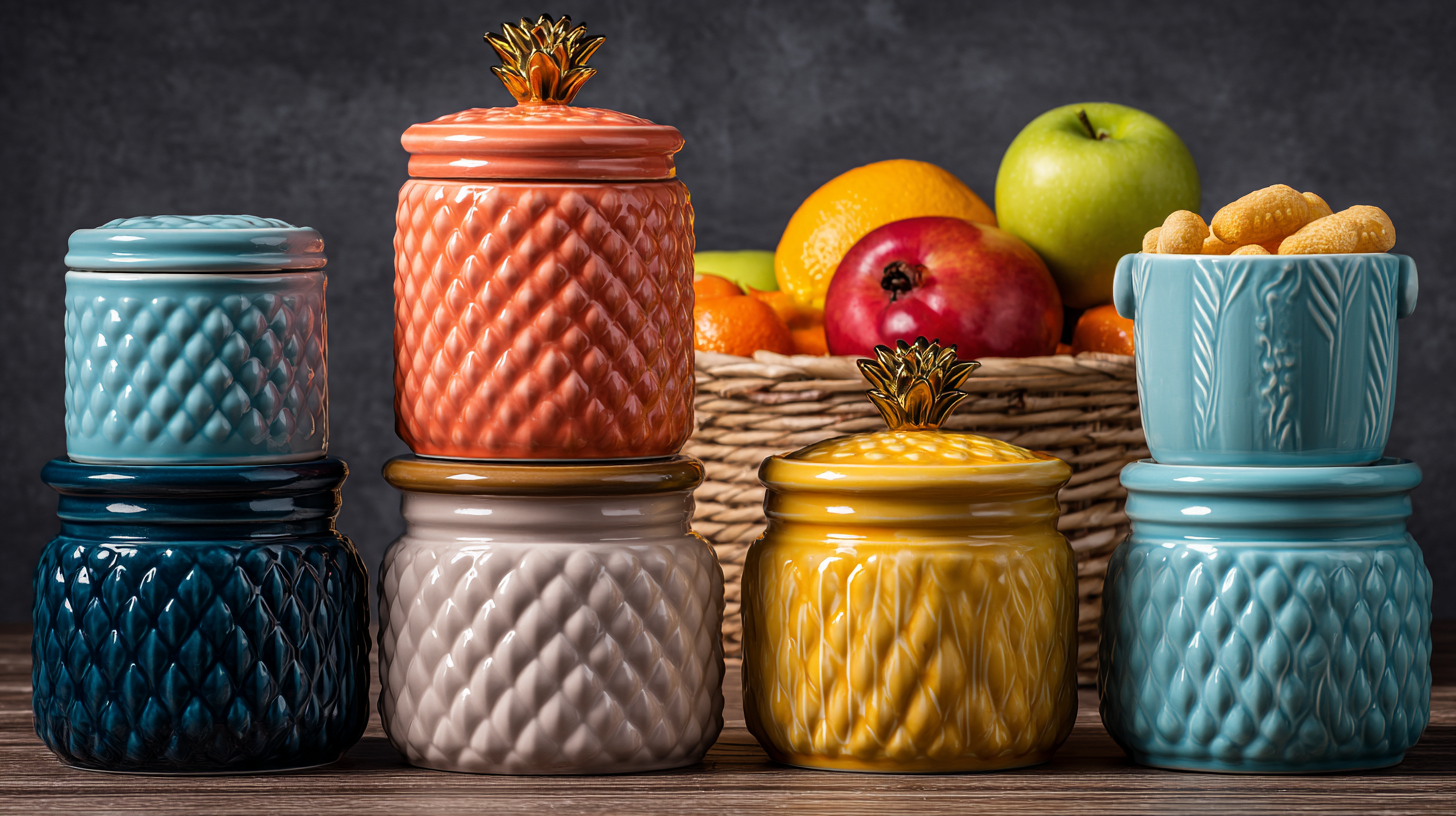
In the mid-range sector, consumers can expect to pay between $20 to $50 for reliable ceramic food storage containers. A study by the National Kitchen and Bath Association highlights that these products often feature advanced glazing techniques and materials that ensure longevity and resistance to chipping. While premium brands may charge upwards of $100, budget-conscious shoppers can still find durable ceramic options at a fraction of the price that maintain aesthetic appeal and functional performance. Prioritizing features such as lead-free materials and oven-safe capabilities can also guide consumers in making informed decisions within their budget.
Ceramic food storage containers play a crucial role in addressing the pressing issue of food waste. Studies indicate that over a third of all food produced globally is wasted, significantly impacting both the environment and household budgets. By utilizing ceramic containers, which are known for their durability and non-reactive properties, we can extend the shelf life of food items. These containers create an airtight seal and are often designed to regulate moisture, which helps to keep food fresher for longer periods compared to plastic alternatives.
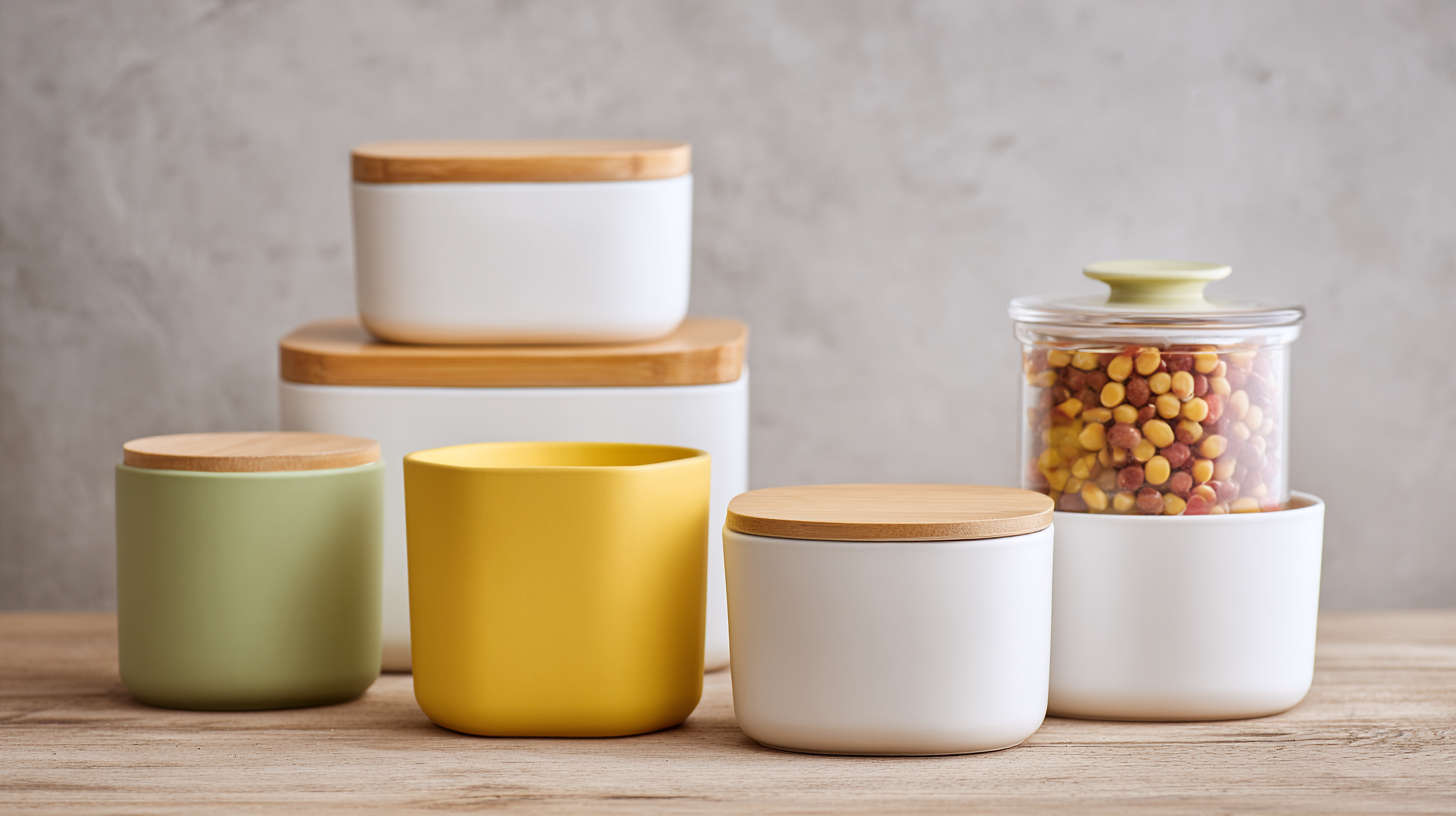
Moreover, the aesthetic appeal of ceramic containers encourages better food organization and presentation in the kitchen, prompting families to cook with what they have, thus reducing waste. Statistics reveal that households utilizing functional and visually pleasing storage solutions are more likely to plan meals effectively, minimizing the chance of food spoilage. By making informed choices about food storage with ceramic containers, we not only promote sustainability but also foster a more mindful approach to food consumption in our daily lives.
When it comes to selecting the ideal ceramic food storage container, consumer reviews and ratings provide invaluable insights. Based on extensive research, we can highlight the top five brands that stand out in the market.
First, BIA Cordon Bleu is renowned for its high-quality craftsmanship and elegant designs, making it a favorite for both functional storage and aesthetic appeal in the kitchen. Users frequently praise its durability, which ensures longevity.
Another top contender is Anchor Hocking, celebrated for its affordability combined with quality. Customers appreciate the tight-fitting lids that maintain freshness and prevent spills, making it a practical choice for everyday use.
Pfaltzgraff is also highly rated, particularly for its stylish patterns and versatility. Its containers not only store food effectively but also serve as eye-catching pieces when dining.
Lastly, Le Creuset appeals to those who favor both style and functionality. Ideal for oven-to-table serving, its robust construction is frequently highlighted in consumer feedback, ensuring it withstands daily kitchen demands.
Each of these brands has garnered positive reviews, making them reliable choices for anyone in search of the perfect ceramic food storage container.

